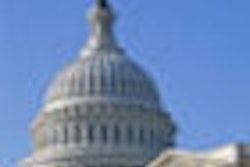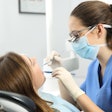
Draft healthcare reform legislation in the U.S. Senate would tax some dental benefits, raising the possibility that fewer adults would seek dental care.
— Chad Olson, Delta Dental manager of
government relations
"We're concerned, and we're seeking clarification," Burton Edelstein, D.D.S., M.P.H., founding chair of the Children's Dental Health Project, told DrBicuspid.com.
The tax is described in a detailed outline of legislation Sen. Max Baucus (D-MT) released Wednesday. He plans to submit the bill next week to the Senate Finance Committee. The bill does not include most of the other provisions, such as subsidies for dental school students, in competing bills that have passed three committees of the House and in the Senate Committee on Health, Education, Labor, and Pensions.
Baucus' staff could not be reached for comment.
The proposed law would set a new tax on "high-cost" health plans provided by employers. The tax would kick in when the total cost of premiums for the combined health insurance benefits -- including dental, vision, and mental -- exceeds $8,000 for an individual or $21,000 for a family.
Cadillac tax
This so-called Cadillac tax would kick in regardless of whether the employer or the employee paid for the benefit, or whether the company administers its own insurance. Self-employed people would have to pay it if they claimed any income tax deduction for healthcare insurance.
Insurance companies would have to pay the 35% tax on the amount over these thresholds. But insurers would most likely pass the cost on to their customers, according to Chad Olson, manager of government relations for Delta Dental. "I would assume that premiums would rise," he said.
To avoid the increased cost on their total package of benefits, some people might drop their dental benefits. "The easiest thing might be to lop off dental and vision because they are freestanding," Dr. Edelstein said.
That could reduce the number of adults who get dental care. "If you have dental insurance, you're far more likely to seek the care of a dentist," Olson said. "In a survey we did in July of this year, 25% said if any tax were put on their dental benefits, they would drop it."
Kids get insurance
The tax would be used, along with other new taxes and fees, to subsidize health insurance for people who can't afford it. Everyone would be required to purchase health insurance, and insurance companies could not deny coverage based on pre-existing conditions.
The subsidies would help people buy insurance through government-regulated exchanges. Plans sold in these exchanges would be required to include dental benefits for children, and could also include dental benefits for adults. So it's possible that more Americans would have dental insurance.
But the type of insurance might change. The Baucus bill and the House bill would not allow standalone dental insurance plans of the type sold by Delta Dental to be sold in the exchanges.
In the House bill after five years, the restriction would extend to insurance plans sold outside the exchanges as well, according to Olson. "It's counter to what [President Barack] Obama said, that if you like your health plan you could keep it," he said.
The Committee for Health, Education, Labor, and Pensions (HELP) bill leaves the decision on what benefits to include to a government commission, but suggests that children's dental should be among them.
This restriction on standalone plans raises the possibility that parents would have to buy dental plans for their children that are different from their own dental plans, according to Olson. "Families would be split," he said.
Oral health groups are hoping to see amendments as the three bills continue their journeys toward Obama's desk. Delta Dental would like to be able to offer standalone dental plans that could be combined with other health benefits to fulfill the new requirements.
The Children's Dental Health Project, among other groups, is pushing to have an oral health professional included in the commission that decides what benefits insurance should include. And it would like to extend dental coverage to adults.
The ADA is seeking expansion of Medicaid, with higher reimbursements for dentists and mandatory benefits for adults.
No one has given up, but the prospects for these provisions aren't getting brighter. "It becomes harder to get an amendment as the bills progress," Dr. Edelstein said.
Copyright © 2009 DrBicuspid.com



















